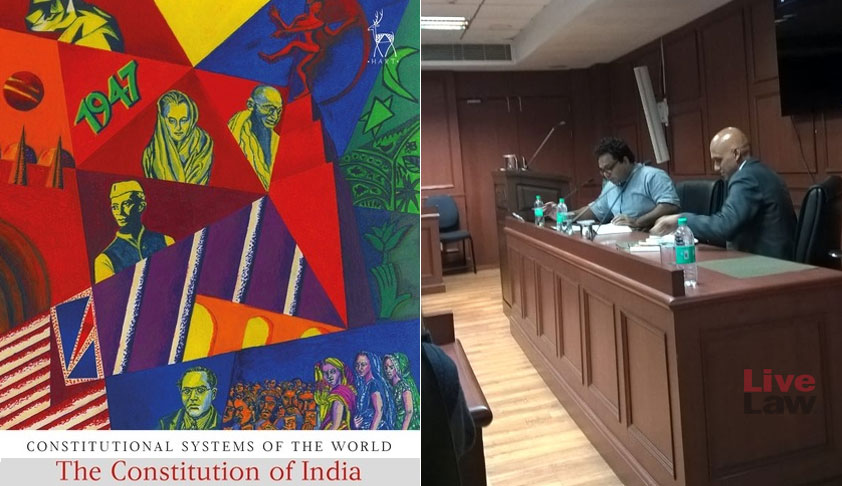Indian Constitution: 'Time To Revisit Framers' Assumptions To Defend Rights Of Minorities'
LIVELAW NEWS NETWORK
17 Jan 2018 12:15 PM IST

Next Story
17 Jan 2018 12:15 PM IST
At a book-launch, held recently at the National Law University, New Delhi, the author of the new book, ‘The Constitution of India: A Contextual Analysis’ (Bloomsbury, 2018, Rs.299), Arun K. Thiruvengadam, who teaches at Azim Premji University, Bengaluru, emphasised the need to revisit framers’ assumptions, and reopen issues, which we had long taken for granted, as settled.Thiruvengadam...
